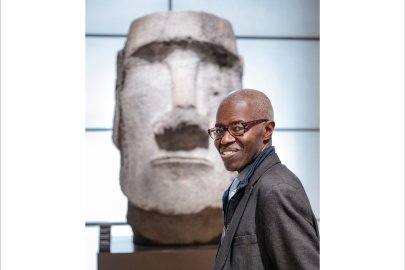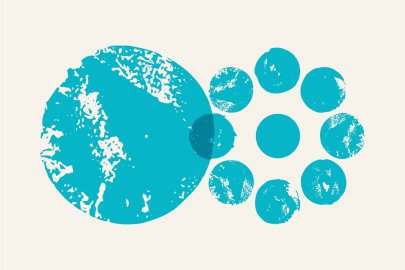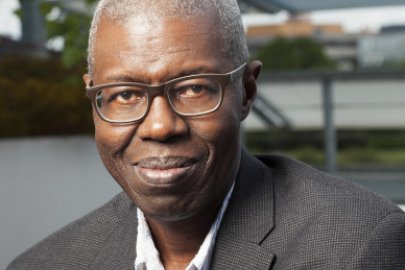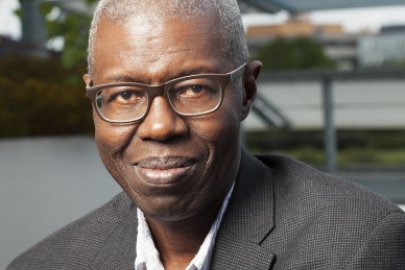Philosophy, Columbia University, United-States
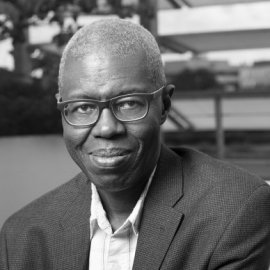
Mai à juin 2024 (Membre associé 2023 / 2024). Résidences précédentes : Mai à juin 2019, mai à juin 2018 et mai à juin 2016.
Souleymane Bachir Diagne is an alumnus of the École Normale Supérieure, he holds an “aggregation” in Philosophy (1978) and he took his Doctorat d’État in philosophy at the Sorbonne (1988). Before joining Columbia University in 2008 he taught philosophy for many years at Cheikh Anta Diop University, Dakar (Senegal) and at Northwestern University in Chicago. His field of research includes history of logic, history of philosophy, Islamic philosophy, as well as questions of African philosophy and literature. His book Bergson postcolonial. L’élan vital dans la pensée de Senghor et de Mohamed Iqbal, was awarded the Dagnan-Bouveret prize by the French Academy of Moral and Political Sciences for 2011 and that same year he received the Edouard Glissant Prize for his work. Souleymane Bachir Diagne’s most recent publications are L’encre des savants. Réflexions sur la philosophie en Afrique; Comment Philosopher en islam; Philosopher en islam et en christianisme (avec Philippe Cappelle-Dumont).
Scenes of translation
The aim is to demonstrate that translation is the creation of reciprocity, including in situations of asymmetry and domination as in the colonial context. Admittedly, more often than not translation shows a profoundly unequal relationship between languages, but it must also be recognized that the best response to linguistic domination, to the division into imperial languages and subaltern or dominated languages, is still translation. We shall therefore focus our study on the role of the “interpreters of the colonial administration”, these intermediaries who often also became translators of cultures and oral literature in the imperial language, thus demonstrating the value of knowing how to think and create from language to language. The transformation of the status of interpreter, from simple spokesperson to the position of translator, is an important development which will be the subject of consideration.
The second scene of translation will be the religious arena in which languages are classified into sacred languages and secular languages. The aim here will be to discuss certain questions (theological, philosophical and political) raised by the act of translating, horizontally as it were, from a language declared sacred into other human languages, and the divine word which has itself already been translated, vertically, into human words.
The third scene of translation will concern the so-called “Timbuktu Studies” which, in West Africa, refer to a tradition of written scholarship which calls into question the essentialist and reductionist definition of African cultures based in orality. It also highlights the importance of Muslim clerics who were known as “the non-europhone intellectuals”. The study of the tradition of study that has been established in intellectual centres the most famous of which is Timbuktu, will also address the question of the philosophical future of African languages through translation.
Both fellows and visiting scholars will share their reflections on this project and its various themes, which may result in the publication of a collective volume on the Scenes of translation described here
2014. « Édouard Glissant : l'infinie passion de tramer », Littérature, n° 174, p. 88-91.
2013. L’encre des savants. Reflexions sur la philosophie en Afrique, Paris: Presence africaine et Codesria.
2013. Comment philosopher en Islam, Paris: Editions Philippe Rey.
2013. « On the Postcolonial and the Universal? », Rue Descartes, n° 78, p. 7-18.
2011. African Art as Philosophy. Senghor, Bergson, and the Idea of Negritude, Seagull, (trad. Ang.: Léopold Sédar Senghor: l’art africain comme philosophie, Paris: Riveneuve Editions, 2007.)
2011. « Philosopher en Afrique », Critique, n° 771-772, p. 611-612.
2009. « Individual, Community, and human Rights, a lesson from Kwasi Wiredu’s philosophy of personhood », Transition, an international Review, No. 101, pp. 8-15.
2003. « Islam et philosophie : leçons d'une rencontre », Diogène, n° 202, p. 145-151.
Research Project : Scenes of translation
The aim is to demonstrate that translation is the creation of reciprocity, including in situations of asymmetry and domination as in the colonial context. Admittedly, more often than not translation shows a profoundly unequal relationship between languages, but it must also be recognized that the best response to linguistic domination, to the division into imperial languages and subaltern or dominated languages, is still translation. We shall therefore focus our study on the role of the “interpreters of the colonial administration”, these intermediaries who often also became translators of cultures and oral literature in the imperial language, thus demonstrating the value of knowing how to think and create from language to language. The transformation of the status of interpreter, from simple spokesperson to the position of translator, is an important development which will be the subject of consideration.
The second scene of translation will be the religious arena in which languages are classified into sacred languages and secular languages. The aim here will be to discuss certain questions (theological, philosophical and political) raised by the act of translating, horizontally as it were, from a language declared sacred into other human languages, and the divine word which has itself already been translated, vertically, into human words.
The third scene of translation will concern the so-called “Timbuktu Studies” which, in West Africa, refer to a tradition of written scholarship which calls into question the essentialist and reductionist definition of African cultures based in orality. It also highlights the importance of Muslim clerics who were known as “the non-europhone intellectuals”. The study of the tradition of study that has been established in intellectual centres the most famous of which is Timbuktu, will also address the question of the philosophical future of African languages through translation.
Both fellows and visiting scholars will share their reflections on this project and its various themes, which may result in the publication of a collective volume on the Scenes of translation described here
Biography
Souleymane Bachir Diagne is an alumnus of the École Normale Supérieure, he holds an “aggregation” in Philosophy (1978) and he took his Doctorat d’État in philosophy at the Sorbonne (1988). Before joining Columbia University in 2008 he taught philosophy for many years at Cheikh Anta Diop University, Dakar (Senegal) and at Northwestern University in Chicago. His field of research includes history of logic, history of philosophy, Islamic philosophy, as well as questions of African philosophy and literature. His book Bergson postcolonial. L’élan vital dans la pensée de Senghor et de Mohamed Iqbal, was awarded the Dagnan-Bouveret prize by the French Academy of Moral and Political Sciences for 2011 and that same year he received the Edouard Glissant Prize for his work. Souleymane Bachir Diagne’s most recent publications are L’encre des savants. Réflexions sur la philosophie en Afrique; Comment Philosopher en islam; Philosopher en islam et en christianisme (avec Philippe Cappelle-Dumont).
